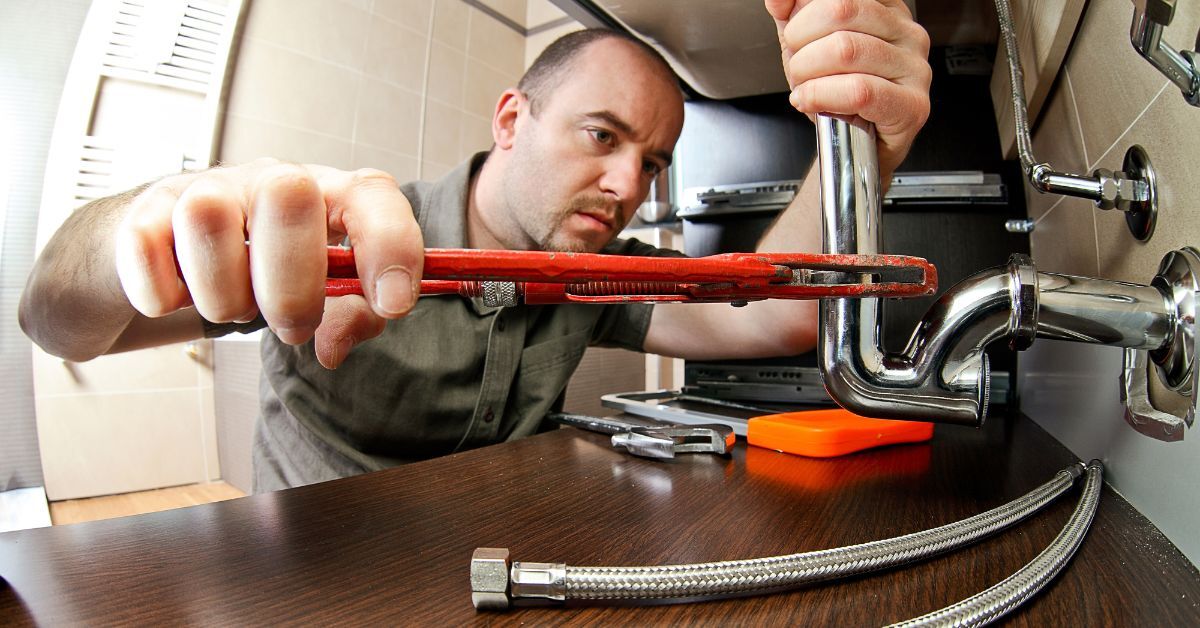Some plumbing issues at home are simple fixes, but sometimes plumbing issues can be complicated when you’re unsure what’s wrong. When a problem goes beyond fixing a clog with a plunger or tightening a loose connection to stop a drip, there’s only so much you can do with DIY plumbing tips. While it’s recommended to call a professional when you’re out of options or you don’t know what to do next, there are situations where a pro is necessary. If you experience the following signs, it may be time to call a plumber.

You have no running water. Check to see if the water was shut off, and ask your neighbor if their water is running. There could be an underlying issue such as a major leak, frozen pipe, an obstructed pipe causing a backup, or some other issue with your water line. Contact a plumber immediately if you don’t have a drip coming out, and your neighbors have water.
No hot water. This is common if someone takes a long hot shower or does laundry using the hot water supply. However, if it takes the hot water a long time to return or you’ve noticed ongoing problems with getting hot water, call a plumber to look at your water heater. You could need a new water heater, the pilot light relit, or there could be another issue that needs professional attention.
The water heater has condensation collecting on it. If your water heater looks like it’s sweat, there could be a leak from a crack in the casing or piping. If this is not brought to a professional’s attention, you could be looking at more extensive problems. It may not be as expensive as you think if you call a pro sooner than later.
Low water pressure. Sometimes plumbing issues result in low water pressure. A pipe could have a crack or leak, leading to more significant issues. Sometimes, it could be an issue with your home’s foundation.
The water doesn’t drain properly. A plunger can help with unclogging drains, but sometimes that’s not enough. If the same drain keeps having problems, it’s time to have a plumber look at it. The drain may have a deeper clog you can’t reach, or an issue may occur in the sewer line. A pro plumber can detect the problem and provide a solution.
A dripping faucet. Dripping faucets can lead to wasting much water, increasing your water bill. If you have a drip that doesn’t stop, call a plumber to look at it. Sometimes it just needs tightening or plumber’s tape to create a better seal. Other issues could be behind the drip, such as water pressure issues, a pipe crack, or a broken plumbing element. If you don’t have time to fix minor problems, or if you don’t know how to fix them, it may be worth calling a professional.
Toilet overflow problems. It’s common for a toilet to overflow, but if it happens more often, there could be a plumbing issue. It could be a clog issue that’s not visible such as in the sewer line or drain pipe. A professional plumber can assess the situation, remedy the problem, and prevent reoccurrences.
Foul odor from pipes. A drain pipe may be clogged without proper ventilation. A sewer pump could be damaged. You could also have a clog too far in the pipeline for a plunger to reach. If you smell sewage or similar foul odors, contact your local plumber.
When a clog runs deeper than a plunger can fix, it’s essential to call a plumber. If you don’t have a clogged drain, ask about getting your drains professionally cleaned, which professionals recommend once a year. Drain cleaning services are quick, efficient, and affordable. Services can reduce the risk of replacement and repairs while keeping your pipes clear.